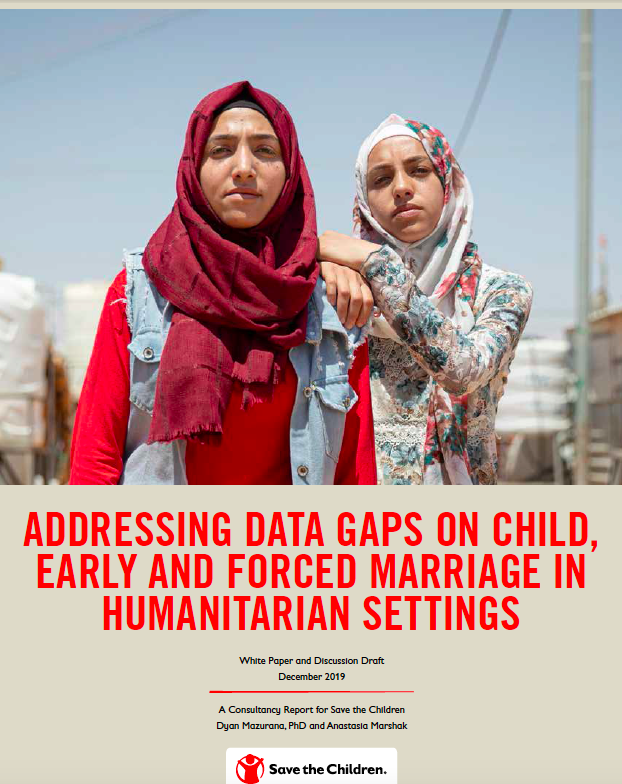The United Nations and its partner agencies have pledged to focus on the problem and eradication of early, child, and forced marriage. On November 12, 2018, the United Nations General Assembly passed a resolution on child, early, and forced marriage. As part of this resolution, the General Assembly highlighted the need for better data collection and disaggregation of that data for improved analysis and learning.
This report is a comprehensive and user-friendly concept note for a database on child marriage in humanitarian settings, a first step in eradicating the problem. The report identifies the existing knowledge and data on child marriage in humanitarian settings, gaps in that evidence base, and provides recommendations for moving forward with the creation of a comprehensive database. The authors interviewed key stakeholders on child marriage across program, policy, and academia in combination with a comprehensive literature review. The report was commissioned and funded by Save the Children U.S.







